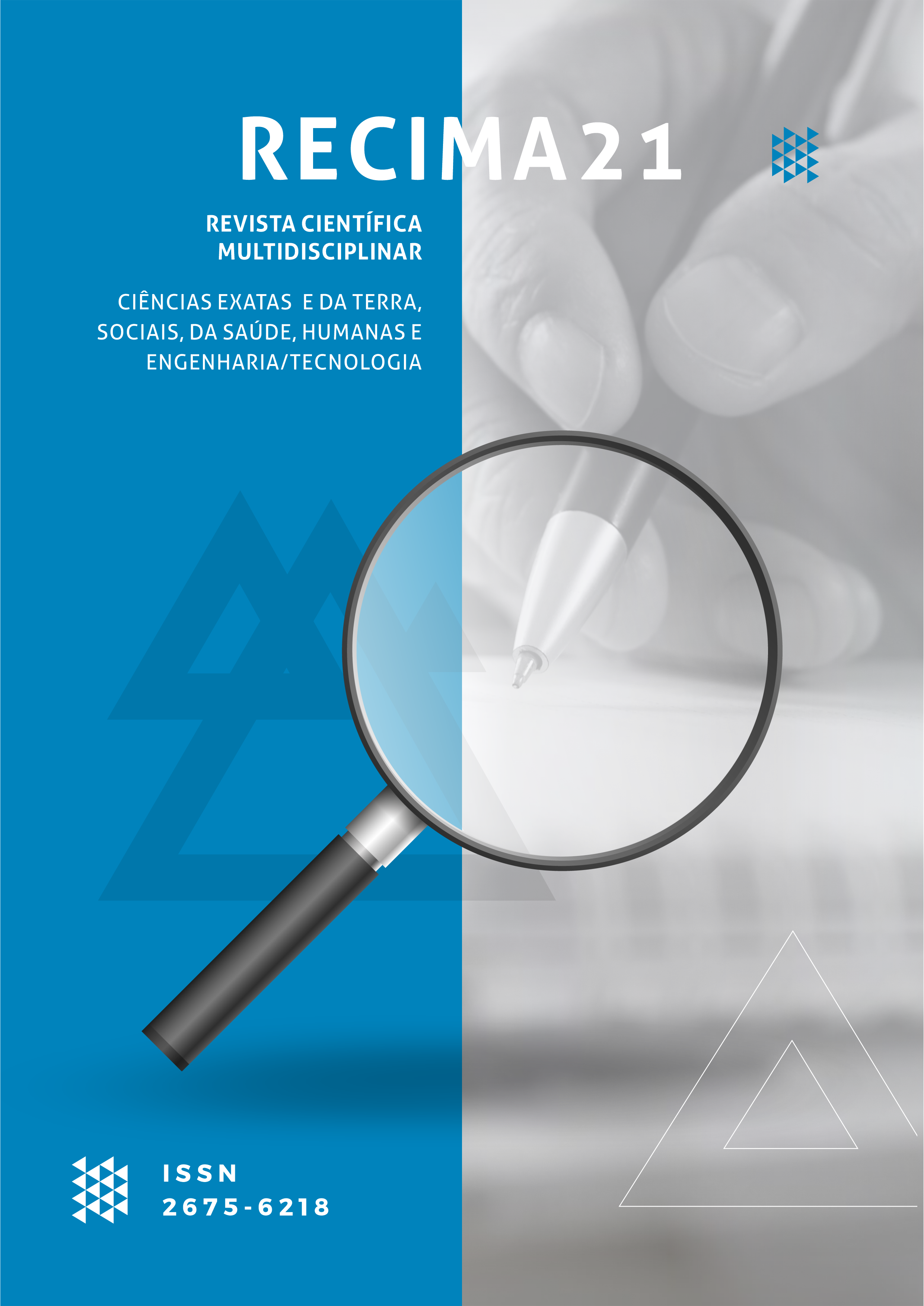BENEFITS OF MUSIC THERAPY IN PATIENTS WITH ALZHEIMER'S DISEASE
DOI:
https://doi.org/10.47820/recima21.v3i12.2394Keywords:
Music therapy, dementia, cognition, neurologyAbstract
Introduction: Alzheimer's disease (AD) is a progressive neurodegenerative disease characterized by a decline in cognitive and behavioral functions due to progressive posterior atrophy, particularly of the medial temporal lobes. Music therapy consists of applying music and its elements (melody, rhythm, harmony, and sound) by qualified professionals, and can be applied actively or passively. Objective: This study aims to evaluate the evidence on the use of music therapy in patients affected by Alzheimer's disease. Methodology: This study is an integrative literature review, where the main databases were used (Medline, Scielo, Web of Science, SCOPUS) using the terms "music therapy", "Alzheimer's disease" and "neurology", combined by Boolean operators. Results and discussion: It was possible to observe that music therapy is beneficial as a non-drug adjuvant treatment in patients with AD, by proving benefits related to the reduction of stress, anxiety, depression, and improvements related to cognition and psychosocial status. Conclusion: Therefore, it is concluded that music therapy is effective in varying degrees of cognitive impairment in Alzheimer's disease, particularly leading to cognitive and psychosocial improvements. Further, studies with larger populations should be done to obtain large-scale results.
Downloads
References
Arroyo-Anlló EM, Dauphin S, Fargeau MN, Ingrand P, Gil R. Music and emotion in Alzheimer’s disease. Alzheimers Res Ther. 2019;11(1). doi:10.1186/S13195-019-0523-Y
De La Rubia Ortí JE, García-Pardo MP, Iranzo CC, et al. Does Music Therapy Improve Anxiety and Depression in Alzheimer’s Patients? J Altern Complement Med. 2018;24(1):33-36. doi:10.1089/ACM.2016.0346
Giovagnoli AR, Manfredi V, Schifano L, Paterlini C, Parente A, Tagliavini F. Combining drug and music therapy in patients with moderate Alzheimer’s disease: a randomized study. Neurol Sci. 2018;39(6):1021-1028. doi:10.1007/S10072-018-3316-3
Gómez Gallego M, Gómez García J. Music therapy and Alzheimer’s disease: Cognitive, psychological, and behavioural effects. Neurologia. 2017;32(5):300-308. doi:10.1016/J.NRL.2015.12.003
Gómez-Gallego M, Gómez-Gallego JC, Gallego-Mellado M, García-García J. Comparative Efficacy of Active Group Music Intervention versus Group Music Listening in Alzheimer’s Disease. Int J Environ Res Public Health. 2021;18(15). doi:10.3390/IJERPH18158067
Innes KE, Selfe TK, Brundage K, et al. Effects of Meditation and Music-Listening on Blood Biomarkers of Cellular Aging and Alzheimer’s Disease in Adults with Subjective Cognitive Decline: An Exploratory Randomized Clinical Trial. J Alzheimers Dis. 2018;66(3):947-970. doi:10.3233/JAD-180164
Levitin DJ, Tirovolas AK. Current advances in the cognitive neuroscience of music. Ann N Y Acad Sci. 2009;1156:211-231. doi:10.1111/J.1749-6632.2009.04417.X
Limb CJ. Structural and functional neural correlates of music perception. Anat Rec A Discov Mol Cell Evol Biol. 2006;288(4):435-446. doi:10.1002/AR.A.20316
Lyu J, Zhang J, Mu H, et al. The Effects of Music Therapy on Cognition, Psychiatric Symptoms, and Activities of Daily Living in Patients with Alzheimer’s Disease. J Alzheimers Dis. 2018;64(4):1347-1358. doi:10.3233/JAD-180183
Oboudiyat C, Glazer H, Seifan A, Greer C, Isaacson RS. Alzheimer’s disease. Semin Neurol. 2013;33(4):313-329. doi:10.1055/S-0033-1359319
Rattinger GB, Fauth EB, Behrens S, et al. Closer caregiver and care-recipient relationships predict lower informal costs of dementia care: The Cache County Dementia Progression Study. Alzheimers Dement. 2016;12(8):917-924. doi:10.1016/J.JALZ.2016.03.008
Simmons-Stern NR, Budson AE, Ally BA. Music as a memory enhancer in patients with Alzheimer’s disease. Neuropsychologia. 2010;48(10):3164-3167. doi:10.1016/J.NEUROPSYCHOLOGIA.2010.04.033
Downloads
Published
Issue
Section
Categories
License
Copyright (c) 2022 RECIMA21 - Revista Científica Multidisciplinar - ISSN 2675-6218

This work is licensed under a Creative Commons Attribution 4.0 International License.
Os direitos autorais dos artigos/resenhas/TCCs publicados pertecem à revista RECIMA21, e seguem o padrão Creative Commons (CC BY 4.0), permitindo a cópia ou reprodução, desde que cite a fonte e respeite os direitos dos autores e contenham menção aos mesmos nos créditos. Toda e qualquer obra publicada na revista, seu conteúdo é de responsabilidade dos autores, cabendo a RECIMA21 apenas ser o veículo de divulgação, seguindo os padrões nacionais e internacionais de publicação.













